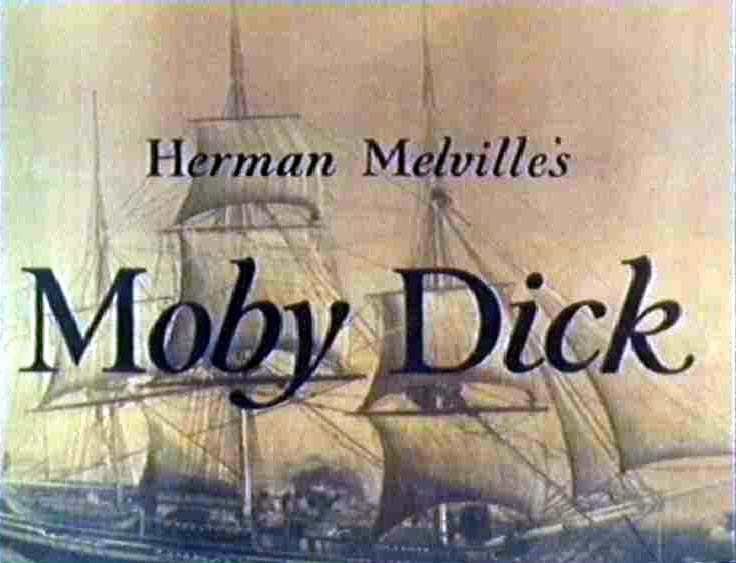|
Review
Critical opinions
on this film are mixed. In some areas it is a definite success -
much of the production design and the look of the photography -
but in other areas it is weak. To many viewers, Gregory Peck is
miscast as Ahab. The whale effects look quite cheap at times, although
Harlan Ellison has observed that the film looks better on television
than in a cinema.
In many ways,
though, this film and its production were pivotal to the career
and writings of Ray Bradbury. Although he had written for the screen
before, this was his first major screenwriting assignment. It was
the first time he worked with a major Hollywood director.
Bradbury lived
in Ireland during the writing of the film, and his experiences provided
him with a rich seam of story material for many years. His "Irish
stories" would eventually be "fixed-up" into a novel,
Green Shadows, White
Whale. This work attempts to link together a series of tall
tales with a clear autobiographical account of the making of the
movie.
Bradbury has
frequently referred to a breakthrough moment in his development
of the screenplay; a time when he suddenly felt that he understood
Melville's world as Melville himself did. After this epiphany, the
screenplay "wrote itself". His account of this in Green
Shadows alone makes the novel worth reading. And naturally, one
really must see the film before reading the novel.
A second impact
on Bradbury's writings came with Leviathan
99, which first appeared as a radio play in the 1960s; this
can glibly be described as Moby
Dick in space. Variant versions of the play have subsequently
appeared on stage and as opera.
It was while
preparing for Moby Dick that Bradbury met Jack Clayton, a
successful if not prolific British film director. Bradbury was with
Huston in London in October 1953, when Huston and Clayton, his associate
producer, were finishing work on Beat the Devil. Bradbury
and Clayton became friends, and nearly thirty years later they would
work together on the film of Something Wicked This Way Comes.
It isn't completely
clear who wrote which parts of Moby Dick. Draft screenplays
for the film have never been published. Bradbury and Huston share
credit, which may tend to suggest that Bradbury wrote the script
and Huston then changed it to suit his directorial needs. In a 1972
interview Bradbury said that the entire script was his, and that
he successfully challenged (via the Writer's Guild of America) Huston's
attempt to take primary script credit - although Huston appealled,
and won.
Charles Higham
(and others) attribute Orson Welles' showpiece Father Mapple sermon
to Welles himself:
|


